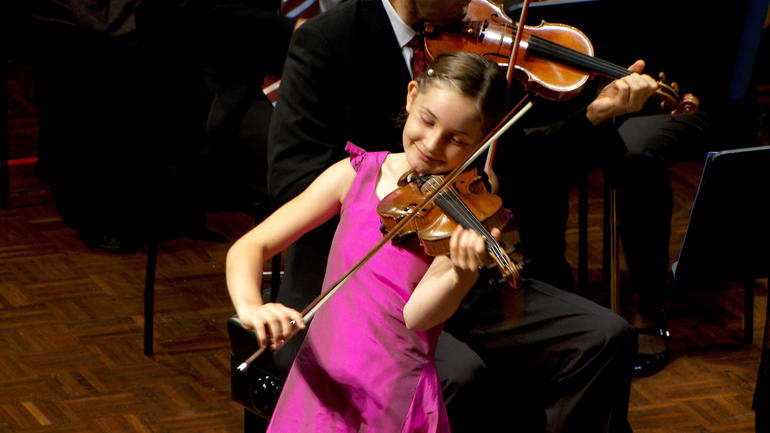

In short: the abberations against which much modernism was a sharp protest. The way in which she is presented however, and the hype surrounding her, unintentionally show with painful accuracy those elements of the classical music world which may be its eventual undoing: the naivity, the kitsch, the Kleinbürgerlichkeit, the reducing classical music as ‘nice entertainment’, the pandering to the worst tastes of the ignorati – all these things perfectly presented in the picture showing a dressed-up quasi 18C Wunderkind. But there is nothing wrong with it, she is still a child. There are many gifted kids capable of writing such music at that age. But that is understadable when ‘the past‘ is considered ’another country’ instead of a living heritage which offers development to people with talent.Īnd little miss Deutscher? Her music is immature, underdeveloped and inauthentic if measured by adult standards. So, whatever people like Mr Eggert have to say about contemprary music, is still burdened by the general taboo upon the achievements of the past, among which are to be categorized music like Stravinsky’s, Shostakovich‘, Britten’s, Ravel’s, let alone of earlier periods – which has set standards of excellence, craft, originality, and especially musical meaning, qualities which have become very rare, in spite of all the support systems. … which is understandable, it’s not easy.

Sometimes he indulges into oldfashioned tonalities, but clearly in a naive and underdeveloped way: The ‘postmodern stance’ appears often as parody – which is another way of taking distance: What snippets from the vocabulary of music appear in his works, are treated as sound samples, not as music.Įggert is, most of the time, a ‘conceptual composer’, i.e. That such approach can never result in truly artistic achievement, is evident from his own works:

His sneers on ‘conservative’ composers who apparently can never write something good, underlines the type of frustrations burdening so many contemporary composers. This is an attempt to create a distance between the ‘I’ and the ‘material’ and to prevent identification. His own position makes that clear: ‘the past’ offers many useful elements that can be played with, as long as it is within a postmodern context of ‘objets trouvés’, placed in inverted commas. What is demonstrated in Eggert’s texts is a striking ignorance of the all-pervading Berührungsangst – in continental Europe – in both the educational system and the contemporary music circuit of ‘the past’, as if this is some embarrassing association with sin, in the medieval theological sense. William is right in his description of Eggert’s aesthetic position, which disguises the still strong taboo upon any new music resembling prewar traditions – in the plural: there were many and the atonal modernist strand consisted of merely a small number of ‘believers’. Both parties show serious signs of ignorance. The rather crazy exchange between father Deutscher and Moritz Eggert is typical of the many misunderstandings surrounding contemporary music. It’s unfortunate that Mortiz was attacked in this manner. We might also note that Munich’s University of Music was known for its rather conservative stance surrounding new music–something that stems back to professors there including Karl Orff, Guenter Bialis, Wilhelm Killmayer, and others–and that Munich was somewhat isolated for this relatively anti-modernist stance.īut I agree that Alma Deutscher is another phenomenon all together and that people need to take a closer look at what is going on. It’s misleading to say this shows the establishment’s tolerance for traditionalist approaches since his use of them is often pointedly ironic. Actually, he employs a an eclectic postmodern mixture of modernist and traditional styles, often with a lot of irony surrounding the traditionalist elements. Moritz says he has not been criticized for writing music that includes traditionalist elements.

Good article by Moritz, though I think he hedges a bit about the stylistic biases surrounding new music in continental Europe.


 0 kommentar(er)
0 kommentar(er)
